Below are the undergraduate courses Political Science tentatively plans to offer in Spring 2023. For more information, contact the department or the specific course’s instructor.
- or filter by subfield:
- or filter by schedule:
-

Pol S 101: Introduction to Political Science
Prof. Shaw • TR 2:10–3:25
Find out what political science is all about, and develop the skills needed to start making sense of what happens in politics, policy, and government.
-

Pol S 111: Introduction to American Government
Prof. Shelley • MWF 1:10–2:00
Prof. Laehn • TR 11:00–12:15Learn about how American democracy works, or doesn’t work, from its policymaking institutions to the public’s political behavior. There are presidential elections, but also so much more!
-

Pol S 121: Introduction to International Politics
Prof. Mansbach • TR 9:30–10:45
Prof. Feinstein • TR 12:40–1:55War, globalization, and the national interest drive events in the world today, as they have throughout history. Explore the dynamics underpinning everything from terrorism to international cooperation on climate change. Meets International Perspectives Requirement.
-

Pol S 125: Democracy and Dictatorship: Introduction to Comparative Politics
Prof. Ren • MWF 12:05–12:55
Prof. Pirro • MWF 9:55–10:45How do different societies choose their leaders, run their governments, and regulate their economies and societies? This introduction will show you examples and ideas from around the world. Meets International Perspectives Requirement.
-

Pol S 232X: Business, Government, and the Public Good
Prof. Tuckness • MWF 1:10–2:00
What are businesses’ responsibilities to society, and how does the government encourage or regulate desirable behavior from companies?
-

Pol S 235: Introduction to Ethics and Politics
Prof. Deam • MWF 12:05–12:55
Politics implicates so many moral issues: violence, deceit, corruption, civil disobedience, justice, freedom, and more. See what guidance classic and contemporary thinkers have offered on doing right.
-

Pol S 271: Public Organizations and Leadership
Prof. Hassid • TBD
Introductory survey of public governance at the administrative and managerial levels of international, national, state, and local government. Essential issues and competencies involved in efficient, effective, and ethical provision of public goods and services. Relationships inside and across governments, social equity, public-private partnerships, and privatization.
-

Pol S 301: Introduction to Empirical Political Science Research
Prof. Peterson • MWF 1:10–2:00
Human interactions are complicated; how do we make sense of them? Hone your critical-thinking and data-analysis skills while learning about how politics works in the real world.
-

Pol S 305: Comparative Political Behavior
Prof. Smith • TR 9:30–10:45
Contested elections. Protests. Political polarization. Threats of secession. Police violence. How ordinary citizens make politics happen, and what does it mean for US and global democracy?
-

Pol S 306: Public Opinion and Voting Behavior
Prof. Urbatsch • MWF 2:15–3:05
What factors motivate the public to participate in politics, or cause people to want prefer certain parties, candidates, and policies? This class will look at both what polling can tell us, and sources of information on public attitudes that move beyond polling.
-

Pol S 310: State and Local Government
Prof. Shaw • Online asynchronous
States and local governments have a more direct role in solving many everyday problems of American society than the federal government does. Learn about the distinctive ways of states, counties, and towns, with their unique institutions and patterns of participation.
-

Pol S 312:
TBD • TBD
-

Pol S 314: Canadian Politics and Policy
Prof. McCormick • TR 9:30–10:45
First half-semester • Synchronous online courseCanadian society resembles that of the United States in some ways, but its politics and institutions are very different features. Learn about how a government deals with the challenges of dealing with a continent-scale country right next door to the United States.
-

Pol S 315: Canadian Foreign Policy
Prof. McCormick • TR 9:30–10:45
Second half-semester • Synchronous online courseCanada has forged a reputation as a responsible team player on the global stage, but is it merited? See how the country helps solve world problems, sometimes working with and sometimes independently of its giant neighbor to the south.
-

Pol S 315: Deterrence
Prof. Pirro • MWF 12:05–12:55
First half-semesterThe ability to deter is at the core of international security policy, whether nuclear or conventional. Find out more about the theory and practice of how countries stop each other from going too far and how these efforts can fail.
-

Pol S 315: Assurance
Prof. Pirro • MWF 12:05–12:55
Second half-semesterHow do countries generate trust? The study of reputation and commitments is important for military alliances and for working together to confront global problems.
-

Pol S 318: Campaigns and Elections
Prof. Shaw • MWF 11:00–11:50
It’s always campaign season in the United States, with elections having consequences for all aspects of society. Get hands-on experience in electoral activities and go behind the scenes in these pivotal events for politics and policy.
-

Pol S 319: Law and Politics
Prof. Deam • MWF 12:05–12:55
What are the roles of the judicial system in American politics? How do judges work with the rest of government to establish what the law is?
-

Pol S 320: American Judicial Process
Prof. Deam • MWF 9:55–10:45
Understanding how courts work is necessary to understand law, criminal justice, and federalism in the United States. This class lays out the most important procedural issues involved, including how courts are bound by previous decisions versus what they do when facing new issues, or how judges craft and enforce their rulings.
-

Pol S 333: Democracy and Diversity in America
Prof. Tuckness • TR 2:10–3:25
How does a democracy work when its people differ in so many attitudes and characteristics, as in the modern United States? Different things have offered different views, which we’ll explore in the context of major issues like immigration, affirmative action, multicultural education, religion, and minority representation. Meets U.S. Diversity Requirement.
-

Pol S 334: Politics and Society
Prof. Peterson • MWF 9:55–10:45
American politics links deeply to broader society and culture, and this class lets you explore everything from big-picture social issues like inequality and democracy through the prism of music and movies.
-

Pol S 335: Science, Technology, and Public Policy
Prof. Deam • R 6:10–9:00 PM
From genetically engineered foods to self-driving cars—and into outer space—science and technology are intertwined with political forces. The stories of science policies past and present reveal much about how government, media, and private business in research, development, and the advancement of technology.
-

Pol S 336X: Climate Change Policy
Prof. Wang • TR 2:10–3:25
Policy drives human influences on the climate—and adaptation to it. Come see how governments in the United States and around the world can and do play their part in shaping one of the biggest issues there is.
-

Pol S 338X: Dictatorship
Prof. Hassid • MWF 9:55–10:45
Dictatorial regimes govern huge portions of the world. Where do such regimes come from, and how do they work? Learn about the wide-ranging and colorful world of dictators and despots. Meets International Perspectives requirement.
-

Pol S 339: Liberty and Law in America
Prof. Laehn • TR 2:10–3:25
Debates about what it means to be free (and who gets to be free) means have raged throughout American history. Join the conversation as it roves across topics from marijuana, to guns, to speech, to sex. Meets U.S. Diversity Requirement.
-

Pol S 340: Politics of Developing Areas
Prof. Feinstein • TBD
Economic and political development as they relate to the political process of developing states. Impact of social and technological change on political systems of developing areas. Meets International Perspectives Requirement.
-

Pol S 342: Chinese Politics
Prof. Hassid • TR 12:40–1:55
Learn about the history and politics of the world’s most populous country, a major player in global development, environmental issues, and international politics. Discover how China grew so quickly, and what the future may bring. Meets International Perspectives Requirement.
-

Pol S 343: Latin American Government and Politics
Prof. Smith • TBD
Political institutions, processes, and contemporary issues. Selected countries examined intensively to illustrate generalizations. Role of parties, military, church, human rights, women, environmental issues, interest groups, ideology, and globalization. Meets International Perspectives Requirement.
-

Pol S 344: Public Policy
Prof. Wang • Online asynchronous
Policy shapes outcomes in criminal justice, the environment, social equality, and much else besides. Learn how policymakers set the agenda, and the causes and consequences of their choices.
-

Pol S 346: European Politics
Prof. Pirro • TR 9:30–10:45
Europe is on the front lines of many political trends, from the transnational cooperation of the European Union to social-welfare states and the turn towards populism. Learn more about how these societies have faced these challenges. Meets International Perspectives Requirement.
-

Pol S 348: British Government and Politics
Prof. Shaw • TR 11:00–12:15
The United Kingdom packs a lot of big political questions into one country: democracy and monarchy, terrorism and local control, domestic autonomy vs. international integration. And as the model for other parliaments and systems around the world, it has outside influence and importance. Meets International Perspectives Requirement.
-

Pol S 349: Politics of Russia and Eastern Europe
Prof. Feinstein • TR 9:30–10:45
Russia looms large in every sense on the world stage, and the nation-states of the former Soviet bloc are key to understanding global politics. Learn about these newsy states of Eurasia, and their vibrant economic, cultural and social variations. Meets International Perspectives Requirement.
-

Pol S 350: Politics of the Middle East
Prof. Gabiam • Online asynchronous • Second half-semester
Get the necessary tools to understand the socio-political landscape of the contemporary Middle East: its colonial past and nationalism, political Islam and the political economy of oil, and ongoing conflict and instability including not only Palestine and Israel but also the tangled interrelationship between Iran, the United States, and other countries of the region. Meets International Perspectives Requirement.
-

Pol S 352X: Migration and Refugees in the 21st Century
Prof. Gabiam • TBD
The historical, economic, social, political, and environmental factors that explain human mobility in the 21st century. The definition of a “migrant” with special emphasis on refugees (people who have been forcibly displaced across national borders). Ethnographic accounts of current refugee crises and of host state policy toward refugees. Meets International Perspectives Requirement.
-

Pol S 353: Immigration Policy
Prof. Gabiam • MW 3:20–4:35
Immigration policy confronts political threats and economic imperatives. Deciding who gets into the country and how best to integrate those who have come in are hot-button issues around the world; learn how immigrants, refugees, and natives are affected by policy choices. Meets U.S. Diversity Requirement.
-
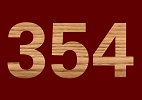
Pol S 354: War and the Politics of Humanitarianism
Prof. Gabiam • TBD
Humanitarianism as a system of thought and a system of intervention in conflict and post-conflict situations. Role of humanitarian organizations and actors in addressing human suffering caused by conflict or war. Military action as a form of humanitarian intervention. Meets International Perspectives Requirement.
-

Pol S 355: War and Politics
Prof. Mansbach • TR 12:40–1:55
War is famously “the continuation of politics by other means,” but how do the two relate? How has the recourse to war changed over time, and when is it justified? Meets International Perspectives Requirement.
-

Pol S 356: Theories of International Politics
Prof. Mansbach • TR 12:40–1:55
Introduction to essential theoretical concepts and approaches, both classical and contemporary on world politics including realism, empiricism, liberalism, and postpositivism; for example, war and conflict, peace and cooperation, political economy, crisis decision-making, systemic theory, dependence and interdependence.
-

Pol S 357: International Security Policy
Prof. Pirro • MWF 12:05–12:55
Policymakers have to think on many levels for national defense: about strategy and deterrence, peacekeeping and terrorism, cybersecurity and environmental security. Learn about these approaches through historical and contemporary cases.
-

Pol S 358: United States Foreign Policy
Prof. McCormick • TR 9:30–10:45
The United States is immersed in world politics whether it wants to be or not. How has it responded in recent decades? Who makes American foreign-policy choices, what values drive them, and how are the choices implemented in practice?
-

Pol S 359: Current Issues in American Foreign Policy
Prof. McCormick • TR 12:40–1:55
Some issues dominate American foreign affairs. This course will take an in-depth look at some of these, such as how the United States deals with China, the Middle East, arms-control policy, and human-rights concerns, showing how the issues have evolved and the different possible policy choices.
-

Pol S 360: American Institutions: Congress
Prof. Peterson • TBD
Theory and practice of representation and deliberation in the legislative branch of the republic; operations of Congress in terms of its committees, leadership, legislative and oversight processes, partisan politics, electoral campaigns, service to local and special electoral campaigns, service to local and special interests, and interactions with the President.
-

Pol S 361: American Institutions: The Presidency
Prof. Shaw • Online asynchronous
The Presidency has a dramatic history, with past chief executives asserting power over, and their personalities into, a wide range of roles and functions. Find out how the American president, and the executive branch more broadly, relates to Congress, the media, and the public.
-

Pol S 363: American Institutions: Media
Prof. Deam • MWF 12:05–12:55
The mass media crucially affects almost every element of American politics, yet it probably barely came up in your high-school civics and government class. Gain insight into how traditional journalism, propaganda, campaign ads influence political outcomes.
-

Pol S 364: Political Parties and Interest Groups
Prof. Shaw • TBD
Nature of political parties and interest groups, their relation to each other, and their effects on American politics. Topics include party identification, party organization and mobilization, factionalism, lobbying, campaign contributions and financing, and the effects of special interests on public law.
-

Pol S 370: Religion and Politics
Prof. Smith • TBD
How does religion influence elections, and what role ought it play? Does religion cause violence and war, or does it help prevent violence? Can we find a truce in the culture wars? Let’s talk about these questions and more: democracy depends on it.
-
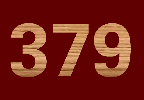
Pol S 379X: Chinese Foreign Policy
Prof. Ren • MWF 2:15–3:05
The rise of China as a world power, and its efforts to engage with the world, has been one of the major world developments of recent decades. Find out more about what its policymakers are thinking and doing.
-
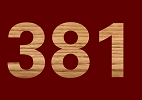
Pol S 381: International Political Economy
Prof. Urbatsch • MWF 8:50–9:40
Trade and money sloshing around the world are major sources of friction and opportunity for countries and governments. This course introduces what happens when politics and economics collide.
-

Pol S 383: Environmental Politics and Policies
Prof. Smith • MWF 8:50–9:40
From local water quality to global carbon emissions, the natural environment reflects politics and policy. Let’s explore the processes, participants, and institutions involved in environmental controversies and proposals for policy reform, and what they mean for conservation and ecology.
-
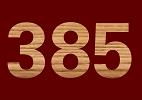
Pol S 385: Women in Politics
Prof. Kedrowski • TR 9:30–10:45
Women have increasingly sought and won power in elected and appointed positions—find out how and why this matters, with a comparative perspective on contemporary gender-related issues in politics and strategies for change through America’s political processes. Meets U.S. Diversity Requirement.
-

Pol S 401: Political Analysis and Research
Prof. Urbatsch • MWF 1:10–2:00
Go deeper into the methods professional researchers use when trying to explain politics and the world—get the tools you need to measure concepts and design studies in social science.
-

Pol S 402: Legal Analysis
Prof. Waggoner • MWF 1:10–2:00
Law schools and judges expect a certain style of logic and reasoning. Get a jump on law-related careers by learning about the rules of legal analysis used in preparing briefs and adversarial oral arguments.
-
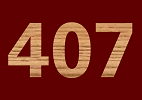
Pol S 407: Proseminar in Public Policy
Prof. Shelley • Online asynchronous
Dive deep into the study of public policy, including its major theories and writers as well as the methods used to analyze and understand policymaking. How do policies form and evolve?
-
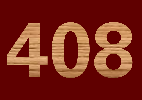
Pol S 408: Proseminar in Public Policy
Prof. Shelley • TBD
The implementation phase of the policy process, primarily within the government sector, with respect to specific programs, rules, or pieces of legislation within a larger policy area, e.g., health, environment, transportation, education, foreign policy.
-

Pol S 409: Political Game Theory
Prof. Urbatsch • TBD
Application of economics to political science in the study of nonmarket decision-making. Behavior of bureaucrats, elected officials, and voters. Market failure, collective action, representative democracies, direct democracies, logrolling, voter paradoxes, and game theory.
-

Pol S 413: Intergovernmental Relations
Prof. Shelley • TBD
Theories and practices of the American federal system. Politics and policy making among federal, state, and local governments.
-

Pol S 419: The Judiciary
Prof. Waggoner • TR 11:00–12:15
What does it take to be a judge? This class explores how judges are chosen and how they interpret laws, including ideological frameworks like originalism and what “judicial activism” means.
-

Pol S 420: Constitutional Law
Prof. Deam • MWF 2:15–3:05
The interpretation of the United States Constitution develops one legal ruling at a time judicial action. How do judges make these rules, and what do their decisions about Constitutional mean for government and society?
-
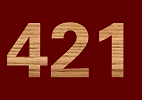
Pol S 421: Constitutional Freedoms
Prof. Deam • MWF 2:15–3:05
The Supreme Court has spent decades interpreting the protections that the Bill of Rights provides against invasions by the federal and state governments. Learn about the most important constitutional provisions and rulings relating to rights regarding religion, speech, privacy, discrimination, and criminal justice.
-

Pol S 422: International Law
Prof. Ren • TBD
Legal aspects of international activities: state jurisdiction over territories and subjects, law of the sea, use of force, and judicial settlement of international disputes.
-

Pol S 430: Foundations of Western Political Thought
Prof. Tuckness • TR 11:00–12:15
Ideas from the ancient Greeks to Renaissance shaped the ways that the writers of modern constitutions, and indeed jurists and philosophers today, think about politics and right. Immerse yourself in these texts as they grapple with the biggest ideas of politics, like justice, freedom, virtue, and power.
-

Pol S 431: Modern Political Thought
Prof. Tuckness • TBD
Study of original texts in political thought ranging from the Reformation to the French Revolution and its aftermath. Topics such as justice, freedom, rights, democracy, toleration, property, power, skepticism, and normative views of international politics.
-

Pol S 443: Energy Policy
Prof. Wang • MWF 8:50–9:40
Energy policy is key to environmental justice and climate change, as well as to a broad swath of the economy: recent controversies over pipelines and blackouts have erupted around the world. Find out how policy connects with energy transitions as technologies and societies change.
-

Pol S 444: Comparative Public Policy
Prof. Shelley • TBD
How, why and to what effect governments deal with substantive policy problems differently. Environmental factors, ideologies, cultures, domestic policy making processes, and interest groups.
-

Pol S 452: Comparative Foreign Policy
Prof. Ren • MWF 9:55–10:45
The world is full of countries trying to get their way in international relations. Read and talk about how different countries try to solve the problems this poses. Meets International Perspectives Requirement.
-

Pol S 453: International Organization
Prof. Ren • TBD
Sources of international order in a variety of substantive areas such as international security, international trade and finance, the environment, and human rights: distribution of power, institutions, international law, and norms.
-

Pol S 460: American Political Institutions
Prof. Peterson • TR 12:40–1:55
The mechanics of checks and balances play out in every corner of American government, from the maneuverings of Congress to the creation of independent school boards. Learn more about how institutional designs affect policy and politics in the United States.
-

Pol S 475: Management in the Public Sector
Prof. Shelley • TBD
Literature and research on organizational behavior and management theory with emphasis on applied aspects of managing contemporary public-sector organizations. Distinctions between public and private organizations, leadership, productivity, employee motivation, organizational structure, and organizational change.
-

Pol S 477: Government, Business, and Society
Prof. Shaw • TBD
Diverse perspectives on the changing roles and relationships of business, government, and society for more effective policy decisions on corporate affairs. The changing economy; transformation of workplace and community conditions; consumerism; social responsibilities of businesses; economic policies and regulations; politics in the business-government relationship.
-

Pol S 480: Ethics and Public Policy
Prof. Laehn • TR 9:30–10:45
Choosing policies often requires making trade-offs between multiple visions of the public good. This class explores how policymakers make those choices through theories and applied cases, examining the proper role of religion and ideology in government decisions.
-

Pol S 487: Electronic Democracy
Prof. Shelley • Online asynchronous
From electronic voting to privacy rights to cyberwar, computers have made their influence felt throughout the world of politics. See where the future is going and what governments can do about it.